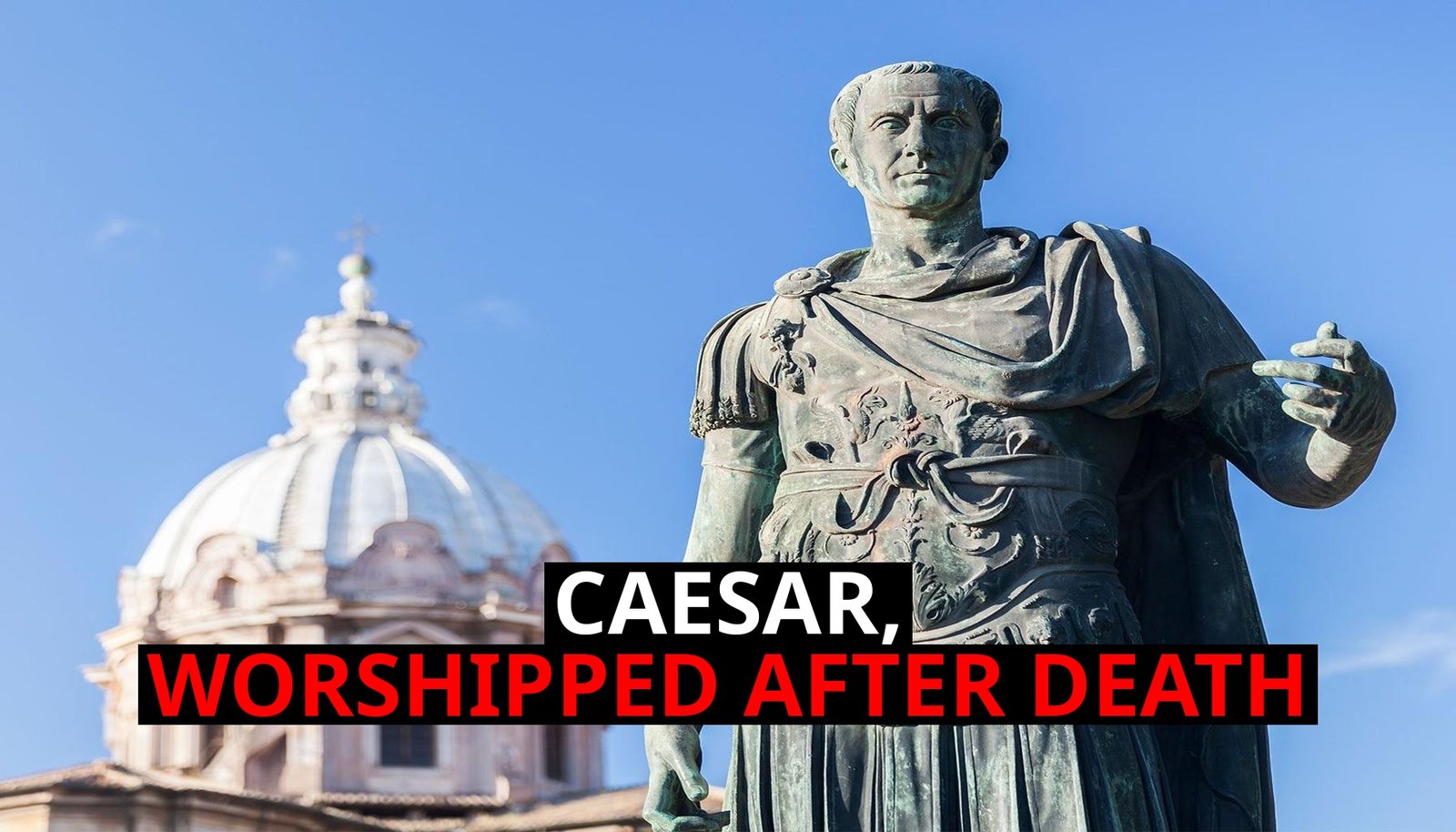Julius Caesar was assassinated on the Ides of March in 44 BCE, but his legacy didn’t end with his death. Instead, it transformed in ways that even his enemies could not have predicted. Within months of his murder, Caesar went from being a dictator to a deity, worshipped by the Roman people and officially recognized as a god by the Roman state. This extraordinary turn of events reshaped the way Romans viewed their leaders and laid the groundwork for future emperors to claim divine authority. The deification of Caesar wasn’t just a religious act—it was a powerful political statement that would shape the future of Roman leadership for centuries.
Caesar’S Assassination And The Birth Of A Cult
After Caesar was brutally stabbed by his fellow senators, Rome was thrown into chaos. But while his assassins had hoped to restore the Republic, they had underestimated the loyalty Caesar commanded among the Roman people. In the months following his death, public opinion quickly turned against his killers, and the streets of Rome were filled with citizens mourning their fallen leader.
The first sign of Caesar’s transformation from a political figure to a religious symbol came during his funeral. At the ceremony, Caesar’s body was placed on display, and Mark Antony, one of his closest allies, delivered a powerful eulogy that stirred the crowd into a frenzy. During the funeral, a comet appeared in the sky—a sign that was immediately interpreted as proof that Caesar’s soul had ascended to the heavens. This celestial event, known as the Sidus Iulium or Julian Star, became the foundation for the idea that Caesar had become a god.
In the months that followed, a cult devoted to the Divine Julius began to take shape. Caesar’s adopted son and heir, Octavian (later Augustus), seized on the popular belief in Caesar’s divinity, using it to solidify his own power. Octavian declared that his father had been deified, and in 42 BCE, the Roman Senate officially recognized Caesar as a god, making him the first Roman to be posthumously deified. Temples were built in Caesar’s honor, and the cult of the Divus Julius (the Divine Julius) became a central part of Roman religious life.
Political Power And Religious Significance
Caesar’s deification had profound political consequences. For Octavian, the recognition of Caesar as a god wasn’t just about honoring his memory—it was about claiming divine legitimacy for himself. As the son of a god, Octavian positioned himself as the rightful ruler of Rome, and his divine connection became a key part of his political strategy. By aligning himself with Caesar’s legacy, Octavian was able to consolidate power and eventually declare himself the first emperor of Rome.
The religious significance of Caesar’s deification also played a crucial role in shaping Roman politics. Roman religion was deeply intertwined with public life, and the deification of a political figure like Caesar blurred the lines between human and divine authority. By becoming a god, Caesar’s legacy extended far beyond his earthly achievements—he became a symbol of divine power that could be invoked by future rulers to justify their own authority.
For the Roman people, Caesar’s deification was a natural extension of the cult of personality that had surrounded him during his lifetime. As a military hero and populist leader, Caesar had already been elevated to near-mythical status. His transformation into a god only formalized what many Romans had already believed—that Caesar was more than just a man; he was a figure of divine significance whose influence extended beyond the grave.
The Temple Of Caesar And Public Worship
One of the most visible signs of Caesar’s deification was the construction of the Temple of Caesar in the Roman Forum. Completed by Octavian in 29 BCE, the temple became the central site for the worship of the Divine Julius. Inside, a statue of Caesar depicted him with a comet above his head, symbolizing his divine ascension. The temple became a place where Romans could offer sacrifices and prayers to their deified leader, and the cult of Caesar became an integral part of Roman state religion.
Public worship of Caesar wasn’t just limited to the temple. Festivals were held in his honor, and coins were minted bearing his image with the inscription Divus Julius. The Julian Star, the symbol of his deification, became a powerful icon that was used to reinforce the idea that Caesar’s legacy lived on, not just in the political realm, but in the spiritual world as well.
Caesar’S Deification And The Future Of Roman Leadership
The deification of Caesar set a precedent that would be followed by many of Rome’s future emperors. After Caesar, it became common for emperors to be deified after their death, reinforcing the idea that the Roman emperor was not just a political leader but a figure of divine authority. Emperors like Augustus, Claudius, and Trajan were all deified, and the line between the emperor’s earthly power and his connection to the gods became increasingly blurred.
By claiming divine status, Roman emperors were able to solidify their rule and maintain control over the vast Roman Empire. The idea of the divine ruler gave the emperor a sense of legitimacy that was difficult to challenge—after all, who could oppose a god? The political and religious authority of the emperor became one and the same, with the emperor seen as a living embodiment of divine power.
Caesar’s deification also had long-lasting cultural effects. As the first Roman to be officially deified, Caesar’s legacy as Divus Julius became a model for how future emperors would be remembered and worshipped. The cult of Caesar represented the merging of politics and religion in a way that shaped the future of Roman leadership, creating a model of the divine emperor that would last until the fall of the Roman Empire.
The Legacy Of A Deified Dictator
The deification of Julius Caesar marked a turning point in Roman history. His transformation from dictator to deity not only cemented his place in Roman religion but also reshaped the way Romans thought about power, authority, and the relationship between the human and divine. By becoming a god, Caesar’s influence extended far beyond his lifetime, setting the stage for a new era of divine emperors who would rule Rome in his image.
Caesar’s deification was more than just an honorific title—it was a powerful political tool that allowed future rulers to claim divine legitimacy and maintain their hold on power. From the construction of the Temple of Caesar to the festivals held in his name, the worship of Caesar became an integral part of Roman religious and political life, ensuring that his legacy would endure for centuries.













